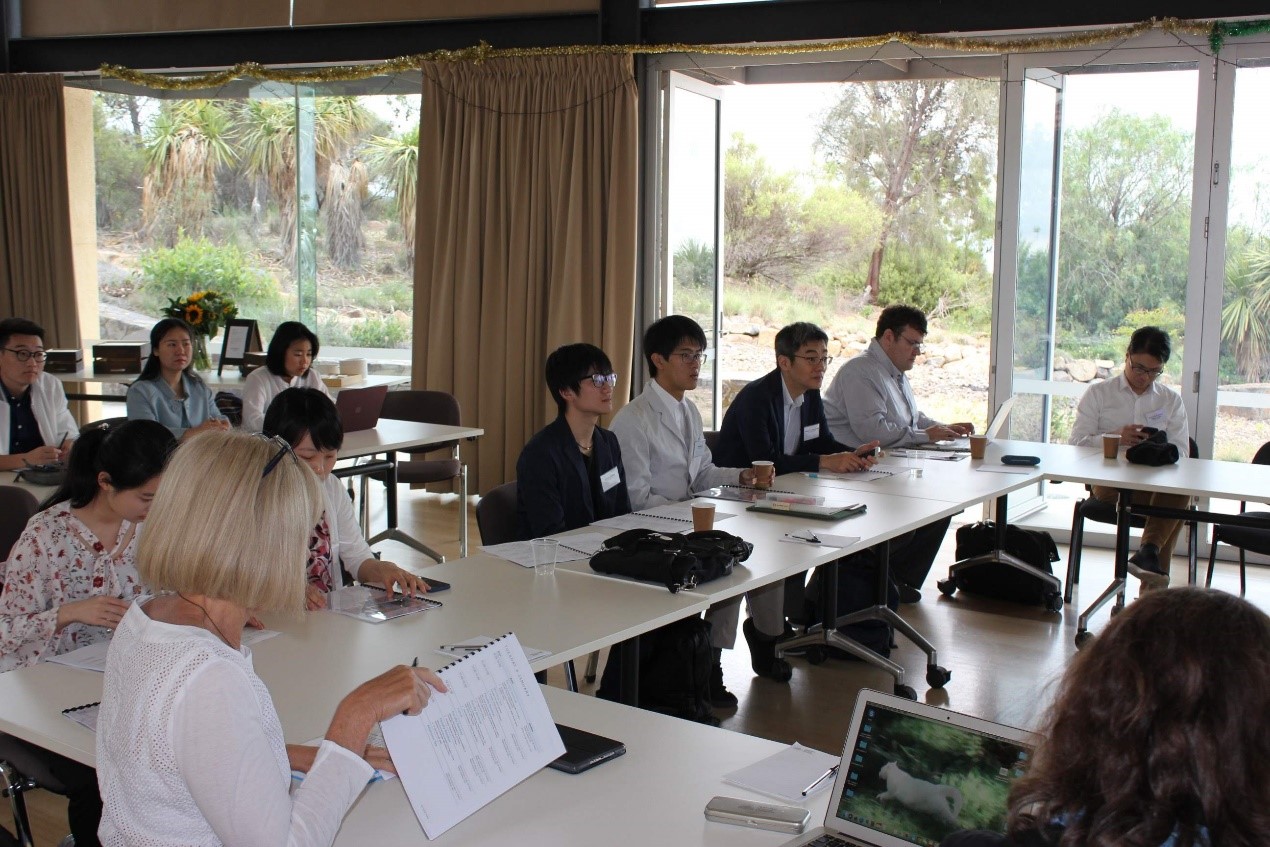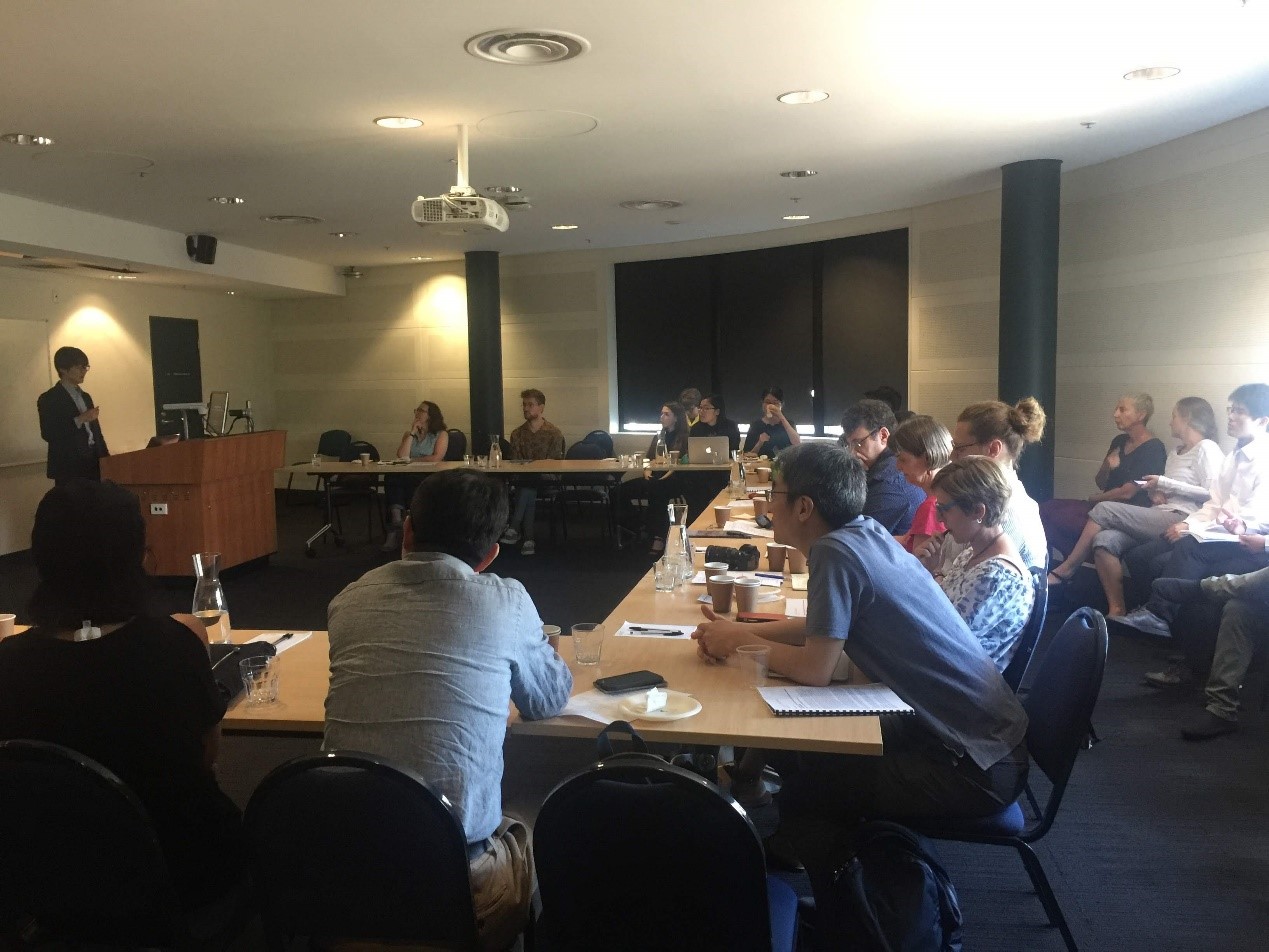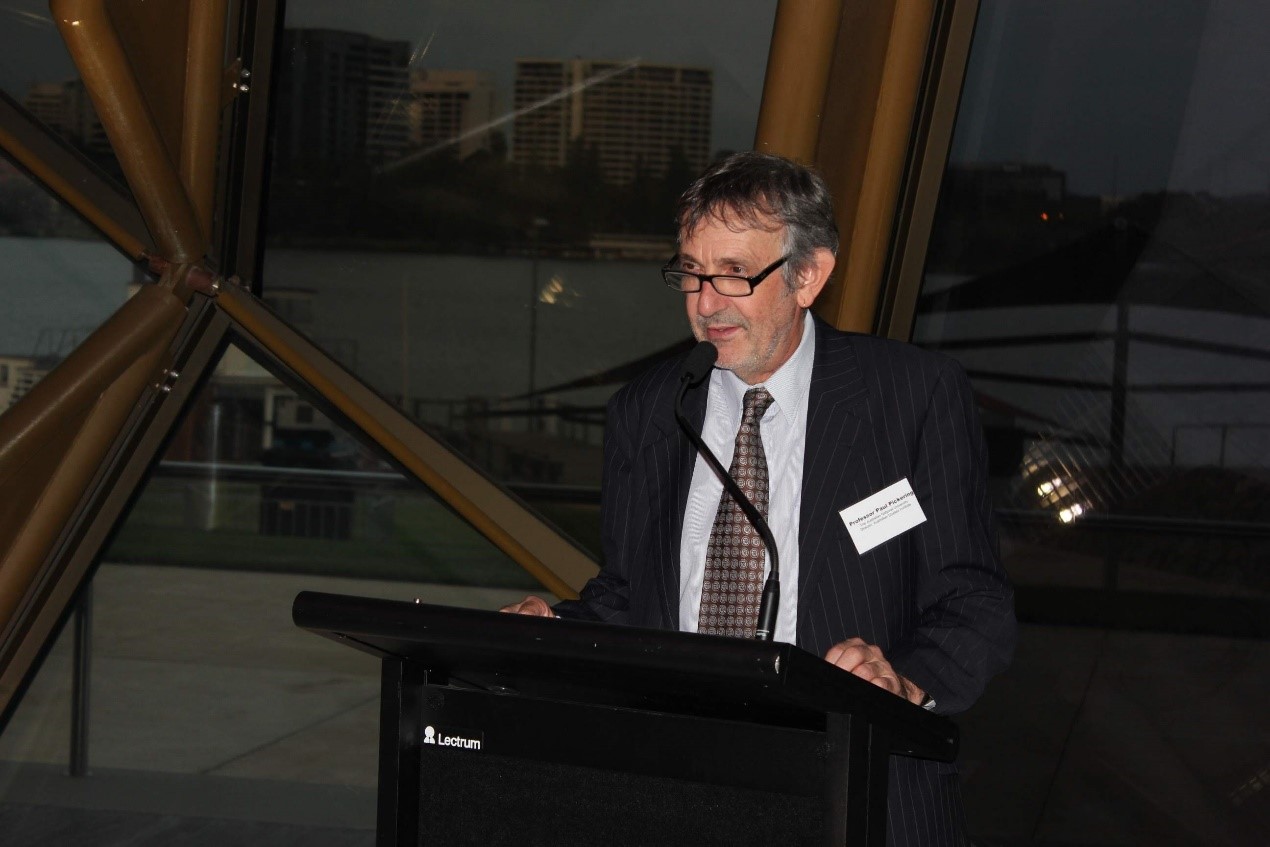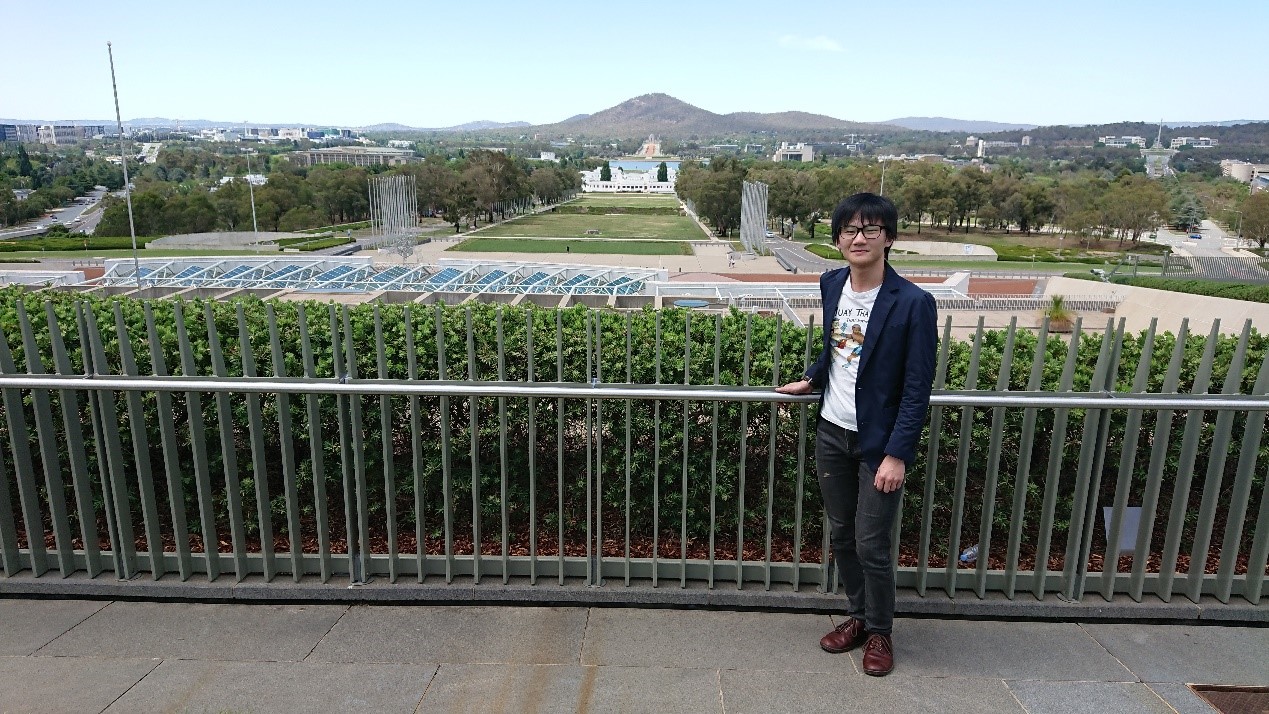【Report】 ANU-PKU-UTokyo Winter Institute 2019 (2)
The motivations of my joining the 2019 Winter Institute could be described as followed. Firstly, the conference this year not only brought together outstanding scholars and young prospects from ANU, PKU, NYU, and UTokyo once again but also focused on the issue of “Nationalism, Culture, and Contested Memory”, which is closely relevant to my research. Therefore, I was longing for presenting my research at the conference with an eye to making contributions to the intellectual dialogue and also getting inspiration. Secondly, I was also looking forward to taking this chance to visit Australia, in which I found many similarities with my hometown, Taiwan, in regards to demographic structure and colonial legacy. Looking back on these days not so long ago, it is the aforementioned reasons that kept me motivated throughout the struggles and frustrations during the preparation processes.

My research discusses the possible association between archaeological practices in Taiwan and the construction of “Taiwanese identity” in post-colonial Taiwanese society. By critically reviewing the history of Taiwanese archaeology, the article reveals how dominant political ideologies throughout history pose an influence on the knowledge production of archaeology and how the trajectory of modern history in Taiwan leads to the fieldwork practice of “rescue excavation” after the 1980s.
My research then looks deeper into the mechanism of “rescue excavation” and how heterogeneous agents are involved in both the fieldwork practices and the process of knowledge production. Referring to the controversial case study of Hanben site, it further explores how the conflict of interests between cultural heritage preservation and land development was exacerbated against the backdrop of rescue excavation; how public opinion has growing importance on the issues mentioned above; and how increasing public involvement in archaeology contributes to a more inclusive understanding of history and self-identity based upon people’s bond with the land.

As Professor Haneda Masashi pointed out in his inspiring opening lecture for the Winter Institute, in order to create a new perspective on world history, historiography should move away from the power discourse of nationalism and genealogical narratives, that is, arranging historical events in chronological orders using certain cultural, linguistic, or national groups as essentialized subjects. My research on Taiwanese Archaeology expresses similar concerns as well. Since Taiwan has a complicated colonial past and composition of population, it inevitably results in diverse recognitions of history and thus multiple identities. Hence, existing nationalist discourses could hardly apply to Taiwan without certain groups of people being excluded from or forced into the limited forms of identity. As a result, a new perspective regarding historiography and Taiwanese history is necessary when it comes to a possible decolonized future of the Islanders. Therefore, if we consider Prof. Haneda’s call of new world history as a statement against essentialism, nationalism, and traditional historiography, then its significance could only be further emphasized in both my research and the local perspective Taiwan delivers.
After my presentation on the fourth day of the winter institute, I received quite a lot of thoughtful feedback from the professors, which certainly provide insights into the social phenomenon and possible further research. Professor Nakajima raises the issue of archaeologists’ responsibility as intellectuals, which suggests archaeology is not only a research field in its own right but also ethically and morally responsible to the society. Throughout history, archaeology has long been considered as “colonial enterprise”. Furthermore, archaeology still remains to be a discipline overshadowed by colonial legacy, neocolonialism, and nationalism even today. Therefore, Prof. Nakajima’s comment reminds me that without careful reflection, archaeology could easily become a powerful tool of oppression. Thus, archaeologists should view themselves more as intellectuals engaging with the public rather than pure “scientists” in the ivory tower.

Professor Pickering, on the other hand, asked for details in my research. Instead of viewing archaeologists or academia as one single agent participating in the field of “rescue excavation”, he is interested in the heterogeneity and contradictory within the intellectual community. As some studies have shown, archaeologists participating in rescue excavation are sometimes criticized by their colleagues for not doing “real” archaeology because of their engagement into contemporary cultural politics. By creating this buffer between the society and “pure” academic research, archaeology is one step further away from reflecting its own position in the power structure and its potential social consequences. Prof. Pickering’s comment brings up an intriguing topic regarding the heterogeneity within academia, to which I would like to pay more attention n further investigations.
Other than that, Professor Zhu, who is also doing his research on archaeology and cultural heritage, further suggests me to conduct “an ethnographic or anthropological investigation on archaeology as a scholarship”, that is, to examine how knowledge is produced in the specific context of rescue excavation. To sum up, I believe the aforementioned three comments engage with three different yet inter-related issues of my research—reflexiveness as intellectual, heterogeneity, and knowledge production. And with these constructive feedbacks in mind, I am looking forward to further conducting research on this topic and extending it into a master thesis.
Overall, I really enjoyed my visit in Australia. Even though the tight schedule of the winter institute kept me from further exploring the area and local life, I still somehow managed to pay a visit to the local zoo and several museums. Furthermore, since the conference brought together scholars from a wide variety of fields, I was able to learn many different new perspectives and knowledge outside of my own research fields, which certainly broadens my horizon and motivates me to work harder in the future. As a result, I would like to thank University of Tokyo for promoting me to such a wonderful and informative conference; Professor Nakajima and Professor Ishii for offering exceptional talks in the conference while taking good care of me throughout the entire trip; Dr. Yoojin Koo for all the administrative works and encouragements; Mr. Konishi and Mr. Liu for being such great peers and travel partners.

By Chia-Li Chuang (Graduate School of Interdisciplinary Information Studies, ITASIA program, The University of Tokyo)






